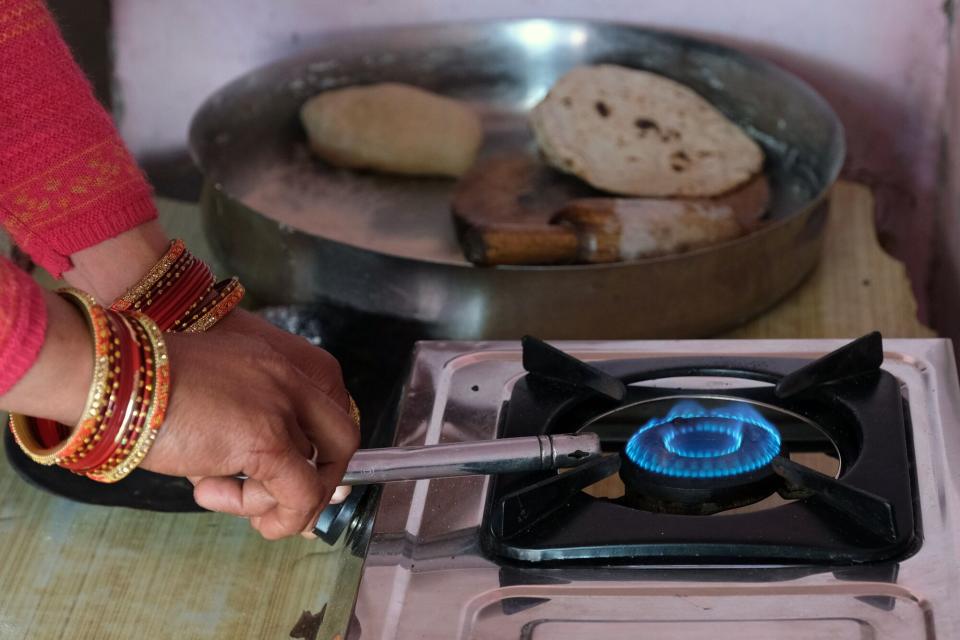Carbon Offsets Developer Reports Ex-CEO to Feds Over Bad Credits

(Bloomberg) -- Carbon offsets developer C-Quest Capital LLC said it reported former Chief Executive Officer Kenneth Newcombe to US federal law enforcement for his role in allegedly issuing millions of environmentally worthless carbon credits.
Most Read from Bloomberg
Biden Struggles to Contain Mounting Pressure to Drop Out of Race
China Can End Russia’s War in Ukraine With One Phone Call, Finland Says
Kamala Harris Is Having a Surprise Resurgence as Biden’s Campaign Unravels
Newcombe, who stepped down in February, “committed wrongdoing” that led to the over-issuance of millions of carbon credits from clean-cooking projects, the company said in a June 26 statement. C-Quest’s new leadership team reported the issue to US regulators and Verra, the world’s leading carbon credits registry through which the credits were issued.
A spokesperson for Newcombe said he categorically denies the allegations and described them as part of a coordinated scheme by private equity firm Vision Ridge Partners, a minority shareholder in C-Quest, to take control of the company. Vision Ridge did not respond to a request for comment.
C-Quest’s decision to involve the authorities is rare in the unregulated carbon offsets market, where companies voluntarily buy credits that support sustainability projects in a bid to make up for their own pollution. Cases of over-crediting have been widespread, and a string of greenwashing controversies haveraised serious questions about whether buyers should use offsets to claim they’re making progress in the fight against global warming.
Newcombe is a carbon markets veteran who launched and managed a number of carbon funds at the World Bank before becoming managing director of fixed income and commodities at Goldman Sachs Group Inc. in New York. He also held a seat on Verra’s board of directors from 2007 until December when he resigned.
Judith Simon, Verra’s interim CEO, said in a statement that the nonprofit takes any accusation of impropriety “very seriously” and will be suspending the 27 C-Quest projects implicated until an independent review is concluded. Verra also has reviewed the governance of its board and established a new role to oversee the auditors responsible for checking whether projects adhere to its standards, Simon said.
Companies including Aviva Plc, PwC, Macquarie Group and Boeing Co. purchased credits from the affected projects, according to data from Verra. Shell Plc and BP Plc also have bought offsets from C-Quest and invested in the company.
A spokesperson for Shell said the company is concerned to learn about the allegations, and will continue to monitor the situation before taking necessary action. Shell hasn’t used any credits from C-Quest projects, and has ring-fenced those remaining in its portfolio so they can’t be retired or traded, the spokesperson said. PwC, Macquarie, Aviva and Boeing declined to comment. BP hasn’t responded to questions.
The credits in question were issued from projects that distribute cleaner or more energy efficient cooking devices to households that rely on dirty fuels such as wood or kerosene. Cookstove credits, as they’re known, are among the fastest-growing project types in the voluntary carbon market.
But cookstove credits also have drawn controversy. Earlier this year, a study by researchers at the University of California Berkeley found “pervasive over-crediting” across cookstove projects, meaning a large chunk of the credits don’t avoid the emissions they claim to. Last year, journalists from the UK's Channel 4 News reported similar issues, including at a C-Quest project in Malawi.
C-Quest hasn’t explained how the alleged wrongdoing occurred at its projects. The company said it has set the credits it assumes to be affected aside and will work with Verra to facilitate their erasure. As for the affected credits already sold, the company said it will eliminate a corresponding amount of credits from its own reserves to ensure that its customers—and the planet—are duly compensated.
The company has reduced its fleet of cookstoves by almost 175,000 and taken a series of other corrective measures, including the appointment of a new CEO and organizational structure, it said. The goal is to establish “a new culture of quality, integrity and transparency,” Jules Kortenhorst, C-Quest’s new chief executive and a former partner at Vision Ridge, said in the statement.
That process was set in motion earlier this year when it terminated several senior executives and employees related to the matter, which was uncovered by a review the company commissioned from a global law firm. “We look forward to the outcomes of the investigations being conducted by the U.S. authorities,” a C-Quest spokesperson said.
Listen on Zero: How Did a Good Idea — Carbon Offsets — Go So Wrong?
--With assistance from Jennifer A Dlouhy.
(Adds comment from former CEO in third paragraph.)
Most Read from Bloomberg Businessweek
Dragons and Sex Are Now a $610 Million Business Sweeping Publishing
The Fried Chicken Sandwich Wars Are More Cutthroat Than Ever Before
For Tesla, a Smaller Drop in Sales Is Something to Celebrate
©2024 Bloomberg L.P.

 Yahoo Finance
Yahoo Finance 